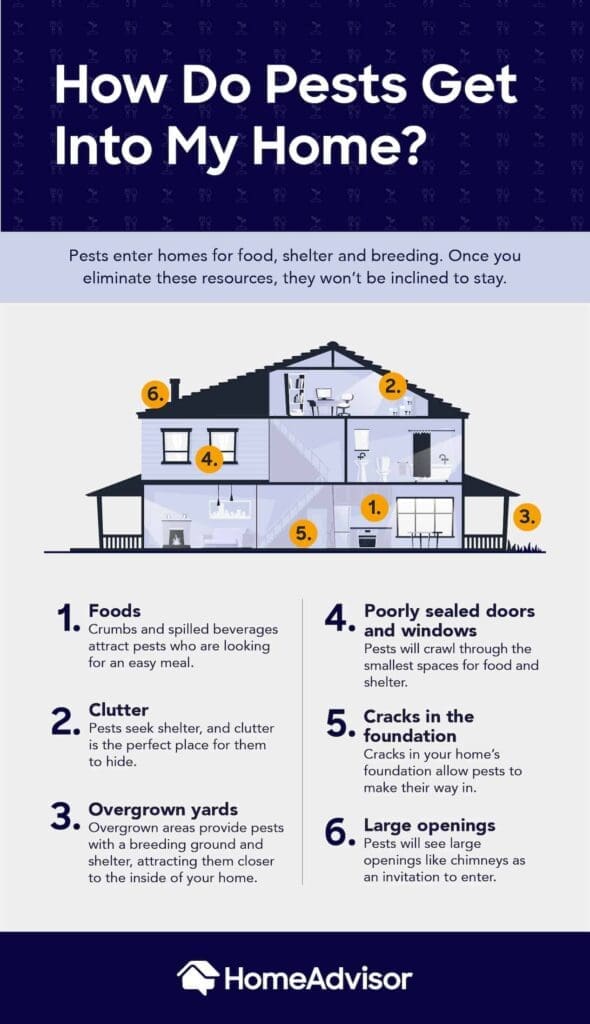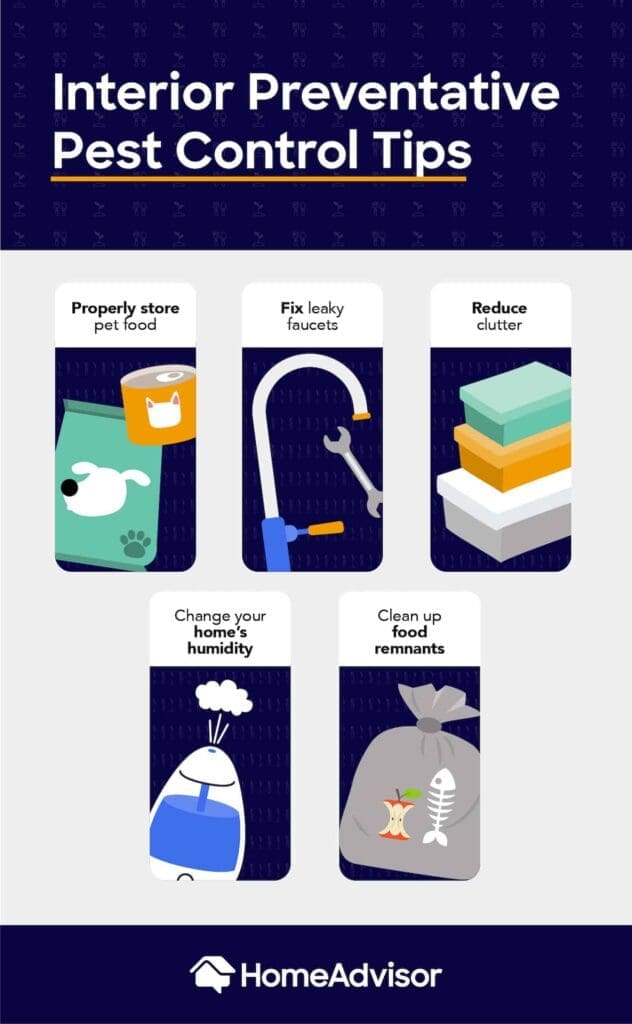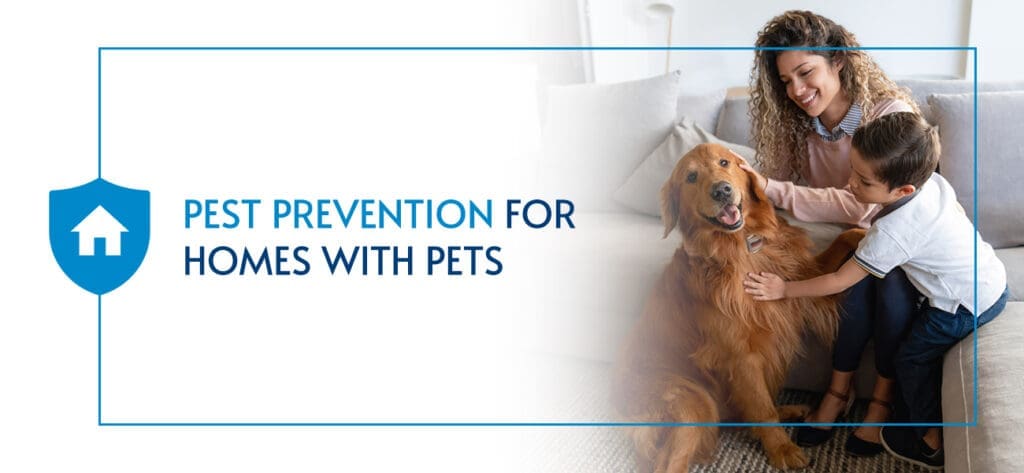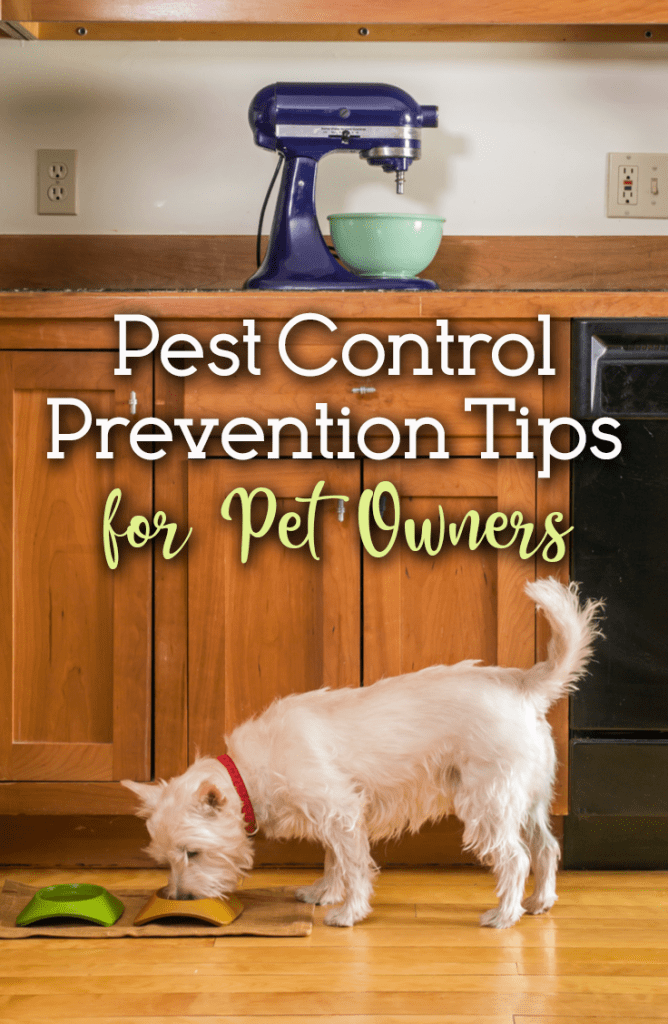Are you a proud pet owner looking for effective pest control solutions? Look no further! “Pest Control For Pet Owners” is here to provide you with all the information you need. From tips on preventing and treating common pest problems to reviews of pet-friendly pest control products, this blog is your go-to resource. Our aim is to not only educate you about pest control, but also help you find the best products on the market. With on-page ads and Amazon affiliate links, we strive to make your pest control journey as convenient as possible. So join us as we tackle pests while keeping our furry friends in mind!

Types of Pests That Affect Pets
Fleas
Fleas are tiny, wingless insects that feed on the blood of animals, including your pets. These pesky pests can cause incessant itching, skin irritation, and even allergic reactions in some pets. They can also transmit diseases such as Bartonellosis, commonly known as “cat-scratch disease” in humans.
Ticks
Ticks are notorious for transmitting dangerous diseases to both humans and pets. These parasites attach themselves to the skin and feed on blood. Pets can contract diseases such as Lyme disease, Rocky Mountain spotted fever, and babesiosis from infected ticks. Regular tick checks and preventive measures are essential to keep your pets safe.
Mosquitoes
While mosquitoes are primarily known for causing discomfort and spreading diseases to humans, they can also affect our furry friends. Mosquito bites can transmit heartworm disease, which can be fatal if left untreated. Preventive measures such as using mosquito repellents and keeping your pet’s environment mosquito-free are crucial for their well-being.
Mites
Mites are microscopic parasites that can cause a range of health issues for pets. Sarcoptic mange, ear mites, and demodectic mange are common conditions caused by mite infestations. These pests can lead to intense itching, hair loss, and skin infections. Prompt treatment and preventive measures are necessary to prevent mite infestations.
Bed Bugs
Bed bugs are not just a nuisance for humans; they can also affect our pets. While they primarily infest bedding and furniture, they can also hitch a ride on your pet and find a new home in their fur. Bed bug bites can cause severe itching and discomfort for pets. Regularly inspecting your pet’s bedding and treating any infestations promptly are essential to keep them safe.
Ants
Ants may seem harmless, but certain species can pose a threat to your pets. Fire ants and carpenter ants are known to deliver painful bites, which can cause allergic reactions in some animals. Additionally, some ants may contaminate pet food and water sources, leading to health issues. Effective ant control methods are necessary to prevent problems for your pets.
Cockroaches
Cockroaches are not only unsightly but also carry various diseases and allergens. These pests can trigger asthma and allergies in pets through their feces, saliva, and cast-off exoskeletons. Cockroach infestations should be addressed promptly to protect your pets from potential health risks.
Flies
Flies are not only annoying but can also transmit diseases to pets. Common fly-borne diseases include salmonellosis and campylobacteriosis, which can cause gastrointestinal issues. Furthermore, the larvae of certain fly species, such as the botfly, can infest the skin or nasal passages of pets. Fly control measures are necessary to protect your pets from these health risks.
Spiders
While most spiders are harmless to pets, certain species, such as the black widow or brown recluse, can deliver venomous bites. These bites can cause severe pain, muscle weakness, and, in rare cases, even death. Identifying and removing dangerous spider species from your surroundings is crucial for your pet’s safety.
Rodents
Rodents, such as rats and mice, can transmit various diseases to pets through direct contact or contaminated food and water sources. Leptospirosis, hantavirus, and salmonellosis are examples of diseases that can be spread by rodents. Preventing rodent infestations and promptly addressing any signs of their presence is essential to protect your pets.
Health Risks Posed by Pests to Pets
Skin Irritation and Allergies
Many pests can cause skin irritation and allergies in pets. Flea bites, mite infestations, and contact with certain plants can lead to intense itching, redness, and discomfort. Continuous scratching and biting the affected areas can result in skin infections and open wounds. Regular flea and tick control measures, along with proper grooming, can help prevent these issues.
Diseases and Infections
Pests can transmit a wide range of diseases and infections to our beloved pets. Mosquitoes can transmit heartworm disease, while ticks can transmit Lyme disease and other tick-borne illnesses. Fleas can transmit Bartonellosis and tapeworm infestations. Regular veterinary check-ups and vaccinations, along with preventive measures, are crucial to protect your pets from these health risks.
Anemia
Fleas and ticks, when present in large numbers, can cause anemia in pets. These blood-sucking pests feed on their hosts’ blood, leading to a decreased red blood cell count. Anemia can result in weakness, lethargy, pale gums, and even organ damage or failure if left untreated. Preventive measures and prompt treatment of flea and tick infestations are essential to prevent anemia in pets.
Parasitic Infestations
Parasitic infestations, such as mites and worms, can cause significant health issues in pets. Ear mites can cause severe itching, inflammation, and ear infections. Intestinal worms, such as roundworms and hookworms, can lead to weight loss, diarrhea, and malnutrition. Regular deworming and preventive measures are crucial to keep your pets free from these infestations.
Injuries or Bites
Some pests, such as ants, spiders, and rodents, can deliver painful bites or stings to pets. Apart from the immediate pain and discomfort, these bites can lead to allergic reactions, swelling, and infection. In the case of venomous spider or snake bites, immediate veterinary attention is necessary. Preventing contact with dangerous pests and promptly treating bites or injuries are essential for your pet’s well-being.
Toxicity from Pest Control Products
While pest control products are necessary to combat infestations, some of them can be toxic to pets if not used properly. Certain chemicals used in flea and tick treatments, for example, can cause adverse reactions if ingested or improperly applied. It is crucial to follow the instructions provided by manufacturers and consult with your veterinarian before using any pest control products on your pets.

Preventing Pest Infestations in Pet Areas
Keeping the Surrounding Area Clean
One of the most effective ways to prevent pest infestations in pet areas is to maintain cleanliness. Regularly clean up any pet waste, spilled food, or debris in and around your pet’s living space. Pests are attracted to food sources, so keeping the area clean and free from clutter can help deter them from making a home in your pet’s environment.
Sealing Entry Points
Pests can enter your home through small cracks, gaps, or openings. Inspect your pet’s living area and the surrounding area for any potential entry points. Seal off gaps or cracks in walls, windows, and doors to prevent pests from gaining access to your pet’s space. Using weatherstripping or door sweeps can also help keep pests out.
Storing Pet Food Properly
Proper storage of pet food is essential to prevent pests from being attracted to your home. Store dry pet food in airtight containers to protect it from pests such as ants, rodents, and cockroaches. Avoid leaving pet food out overnight or for extended periods and clean food bowls regularly to minimize the risk of attracting pests.
Regularly Grooming and Bathing Pets
Regular grooming and bathing routines help keep your pets clean and free from parasites. Brushing your pet’s fur helps to remove any fleas, ticks, or mites present. Bathing with pet-friendly shampoos and conditioners can further help eliminate pests and keep your pet’s skin healthy. Consult with your veterinarian for recommended grooming practices for your specific pet.
Maintaining a Pest-Free Yard
A clean and well-maintained yard can significantly reduce the risk of pest infestations for your pets. Regularly mow the lawn, trim bushes, and remove any standing water to eliminate breeding grounds for mosquitoes and flies. Keep trash bins securely closed and remove any potential hiding spots, such as piles of debris or wood.
Natural Pest Control Methods for Pet Owners
Essential Oils
Some essential oils have natural insect-repelling properties and can be used to deter pests without harming your pets. Citronella, lavender, eucalyptus, and neem oil are examples of essential oils that can help repel fleas, ticks, mosquitoes, and other pests. However, it is essential to use them in diluted form and consult with your veterinarian for proper usage guidelines.
Diatomaceous Earth
Diatomaceous earth is a natural powder made from the fossilized remains of tiny aquatic organisms called diatoms. It is effective in controlling fleas, ticks, mites, and other pests without the use of chemicals. Sprinkle diatomaceous earth in areas where pests are commonly found, such as pet bedding or outdoor spaces, following the instructions provided by the manufacturer.
Vinegar
Vinegar can be used as a natural pest deterrent and disinfectant for pet areas. Mix equal parts of water and vinegar in a spray bottle and use it to clean pet bedding, crates, and other surfaces. Vinegar can help repel pests, such as ants and flies, while also eliminating odors and stains.
Baking Soda
Baking soda is another natural ingredient that can be used as a pest control method for pets. It can help eliminate flea infestations by dehydrating the pests. Sprinkle baking soda on carpets, upholstery, and pet bedding, and leave it for a few hours before vacuuming thoroughly. Repeat this process regularly to control fleas.
Herbs and Plants
Certain herbs and plants have insect-repellent properties and can help keep pests away from your pets. Planting herbs like lavender, rosemary, mint, and chamomile in your garden can naturally deter pests. Additionally, you can use these herbs in the form of dried leaves or sachets as natural repellents in pet areas.
Homemade Pest Control Sprays
Homemade pest control sprays can be made using natural ingredients and are safe for pets. Combining ingredients such as water, vinegar, essential oils, and citrus fruits can create effective pest control sprays. Spray these solutions in areas where pests are present or directly on your pet, following proper dilution ratios and consulting with your veterinarian for guidance.

Chemical Pest Control Products Safe for Pets
Spot-on Treatments
Spot-on treatments are popular and effective methods for controlling fleas and ticks on pets. These products come in small vials and are applied directly to the skin of your pet, usually between the shoulder blades. Spot-on treatments typically provide month-long protection against pests and can be safe when used according to the manufacturer’s instructions.
Oral Medications
Oral medications for flea and tick control are convenient and effective options for pet owners. These medications are usually given once a month and provide systemic protection against fleas and ticks. It is crucial to consult with your veterinarian for the appropriate dosage and to ensure your pet’s safety.
Flea and Tick Collars
Flea and tick collars are worn around your pet’s neck and provide continuous protection against these pests. These collars release active ingredients that repel and kill fleas, ticks, and sometimes other pests. Always follow the instructions provided by the manufacturer and check for any potential allergic reactions or discomfort in your pet.
Topical Solutions
Topical solutions, often referred to as “spot-ons,” are applied directly to your pet’s skin, usually along the back. These solutions provide protection against fleas, ticks, mosquitoes, and other parasites. Like other chemical pest control products, it is crucial to follow the instructions and consult with your veterinarian to ensure the safety of your pet.
Pest Control Powders and Shampoos
Pest control powders and shampoos are used to treat existing infestations and provide temporary relief from pests. These products contain insecticides and should be used as directed by the manufacturer. It is essential to choose products formulated specifically for pets and avoid using products intended for human use, as they can be harmful.
Hiring Professional Pest Control Services
Benefits of Professional Services
Hiring professional pest control services can provide numerous benefits for pet owners. Professionals have the expertise to identify and address pest infestations effectively. They have access to specialized equipment and products that may not be available to the general public. Professional pest control services can offer peace of mind, knowing that your pet’s environment is protected from pests and potential health risks.
Choosing a Reputable Pest Control Company
When selecting a pest control company, it is essential to choose one with a good reputation. Look for companies that are licensed, insured, and have positive reviews from previous customers. Ask for recommendations from friends, family, or your veterinarian. A reputable pest control company will prioritize the safety of your pets and use pet-friendly methods and products whenever possible.
Safe Pest Control Methods for Pets
Professional pest control services should prioritize the safety of your pets. They should use methods and products that are safe for pets, minimizing the risk of exposure to harmful chemicals. Discuss your concerns with the pest control company and ensure they have a pet-friendly approach to pest control.
Understanding the Treatment Process
Before hiring a pest control service, make sure you understand the treatment process they will be using. Ask about the products they will be using, their potential side effects, and any necessary precautions. Clarify any doubts or concerns you may have to ensure you are comfortable with the treatment plan.
Follow-up and Maintenance
Effective pest control requires ongoing monitoring and maintenance. Discuss the follow-up process with the pest control company and inquire about any necessary preventive measures or regular treatments. Regular communication with the pest control company will help ensure the long-term success of the pest control program and the safety of your pets.

Best Pest Control Products for Pet Owners
Flea and Tick Prevention Treatments
There are numerous flea and tick prevention treatments available for pet owners. Popular products include spot-on treatments, oral medications, and flea and tick collars. Some well-known brands include Frontline, Advantix, Seresto, and NexGard. Consult with your veterinarian to determine the best product and treatment plan for your pet.
Mosquito Repellents
Mosquito repellents specifically formulated for pets can help protect them from mosquito-borne diseases. These products come in various forms, such as sprays, wipes, and spot-on treatments. Look for products that contain safe ingredients such as citronella, lemongrass, or geraniol. Follow the instructions provided by the manufacturer and consult with your veterinarian for proper usage.
Mite Control Products
Mite control products are available to treat various mite infestations in pets. These products may come in the form of sprays, powders, or shampoos. It is essential to consult with your veterinarian for an accurate diagnosis and the most appropriate treatment option for your pet’s specific mite infestation.
Safe Bed Bug Treatments
In the unfortunate event of a bed bug infestation, it is crucial to address it promptly to protect your pets. There are safe and effective bed bug treatments available that can be used in pet areas. Professional pest control services may be necessary to ensure thorough treatment and eradication of bed bugs.
Ant and Cockroach Baits
Ant and cockroach baits are effective in targeting these pests while minimizing the risk of exposure to pets. These products utilize attractants and insecticides to eliminate ant and cockroach colonies. It is important to follow the instructions provided by the manufacturer and place baits in areas inaccessible to your pets.
Fly Traps and Repellents
Fly traps and repellents can help control fly populations in and around your pet’s living space. These products attract and trap flies, preventing them from bothering your pets. Look for fly traps that do not use harmful chemicals or toxins and are safe for use around pets.
Spider Control Products
Spider control products can be used to eliminate and deter spiders from your pet’s environment. Spider repellents and sprays can be applied to areas prone to spider infestations. Ensure that the products you use are safe for your pets and follow the instructions provided by the manufacturer.
Rodent Traps and Bait Stations
Rodent traps and bait stations can help control and eliminate rodent infestations. These products should be pet-friendly, ensuring that your pets cannot access the bait or traps. It is important to monitor the traps and dispose of any captured rodents promptly to prevent any potential health risks.
Common Mistakes to Avoid in Pest Control for Pets
Using the Wrong Products
Using the wrong pest control products can result in ineffective treatment or even harm to your pets. It is important to choose products specifically formulated for pets and follow the instructions provided by the manufacturer. Consult with your veterinarian if you have any doubts or concerns about a particular product.
Neglecting Regular Treatments
Pest control requires regular treatments and preventive measures to be effective. Neglecting regular treatments can lead to re-infestation and the persistence of pest problems. Follow the recommended treatment schedule and consult with your veterinarian for guidance on the appropriate frequency of treatment for your specific pet.
Improper Application of Pest Control Products
Proper application of pest control products is crucial for their effectiveness and pet safety. It is important to read and follow the instructions provided by the manufacturer. Avoid applying excessive amounts of products and ensure that your pets do not ingest or come into contact with any treated surfaces until they are dry or safe for their exposure.
Lack of Pet-Friendly Options
Pest control products specifically formulated for pets are essential to ensure their safety. Using products intended for human use or those with potentially harmful ingredients can put your pets at risk. Always choose pet-friendly options and consult with your veterinarian for recommendations.
Ignoring Professional Advice
When dealing with pest infestations, it is important to seek professional advice and guidance. Ignoring professional advice or attempting to handle severe infestations on your own can lead to incomplete treatment or ineffective pest control. Professionals have the knowledge and experience to tackle pest problems effectively and safely.
Incomplete Pest Removal
Incomplete removal of pests can lead to persistent infestations and ongoing health risks for your pets. It is important to thoroughly address the root of the problem and eliminate all pests and their breeding sources. Consult with a professional pest control service if you are unsure about the extent and nature of the infestation.

Emergency Pest Control for Pets
Immediate Action Steps
In case of emergency pest control situations, there are several immediate action steps you can take to protect your pets. Remove your pets from the affected area and isolate them in a safe and secure location. If they have been bitten or stung, apply cold compresses to reduce swelling and pain. Avoid using any household remedies or medications without consulting your veterinarian.
Contacting an Emergency Veterinarian
If your pet is experiencing severe symptoms or has been bitten or stung by a dangerous pest, contact an emergency veterinarian immediately. They can provide guidance on immediate first aid steps and recommend further treatment options. It is crucial to seek professional veterinary care in emergency situations to ensure the well-being of your pets.
Identifying Dangerous Pests
Knowing how to identify dangerous pests is important for taking appropriate action in emergency situations. Educate yourself about common poisonous spiders, venomous snakes, or other pests found in your area. This knowledge can help you identify potential threats to your pets and seek prompt veterinary attention if necessary.
Administering First Aid for Pest Bites
Administering first aid in the case of pest bites or stings can help alleviate immediate pain and reduce the risk of complications. Always consult with your veterinarian or an emergency veterinarian before administering any first aid. They can provide guidance on proper wound cleaning, pain relief, and possible antivenom administration if needed.
Emergency Pest Control Products for Pets
Some emergency pest control products for pets may be available for immediate use. These products are specifically formulated to provide temporary relief or protection in emergency situations. Examples include emergency tick removers, antivenom kits, or temporary pest repellents. Always consult with your veterinarian or an emergency veterinarian for advice on the appropriate use of these products.
Conclusion
Pest control is an essential aspect of pet care that should not be overlooked. The health risks posed by pests can range from minor skin irritation to severe diseases and infections. Taking proactive measures to prevent pest infestations in pet areas and utilizing safe and effective pest control methods are crucial for protecting your pets.
From natural pest control methods to chemical products and professional pest control services, there are various options available to pet owners. It is important to choose pet-friendly products and consult with your veterinarian for guidance. Regular treatments, proper application of products, and ongoing maintenance are necessary for effective pest control.
In emergency situations, immediate action steps and professional veterinary care should be sought. Identifying dangerous pests and administering first aid can help alleviate immediate pain and minimize risks. Emergency pest control products specifically formulated for pets may provide temporary relief or protection.
By prioritizing pest control for your pets, you can ensure their well-being and create a safe and comfortable environment for them to thrive. Assess your pet’s specific needs, consult with professionals when necessary, and implement preventive measures to keep pests at bay. With proper pest control, you can enjoy a pest-free home and a healthy, happy pet.

I am Randy, the author behind PestControld.com. Drawing from decades of experience, I aim to provide valuable insights, expert advice, and practical recommendations to help you make informed decisions when assessing viable pest control solutions.